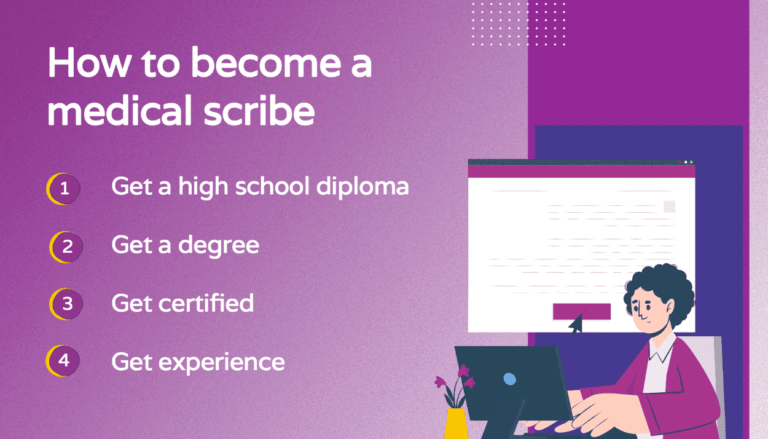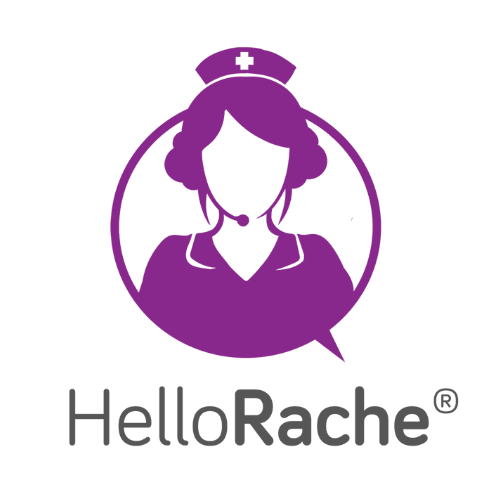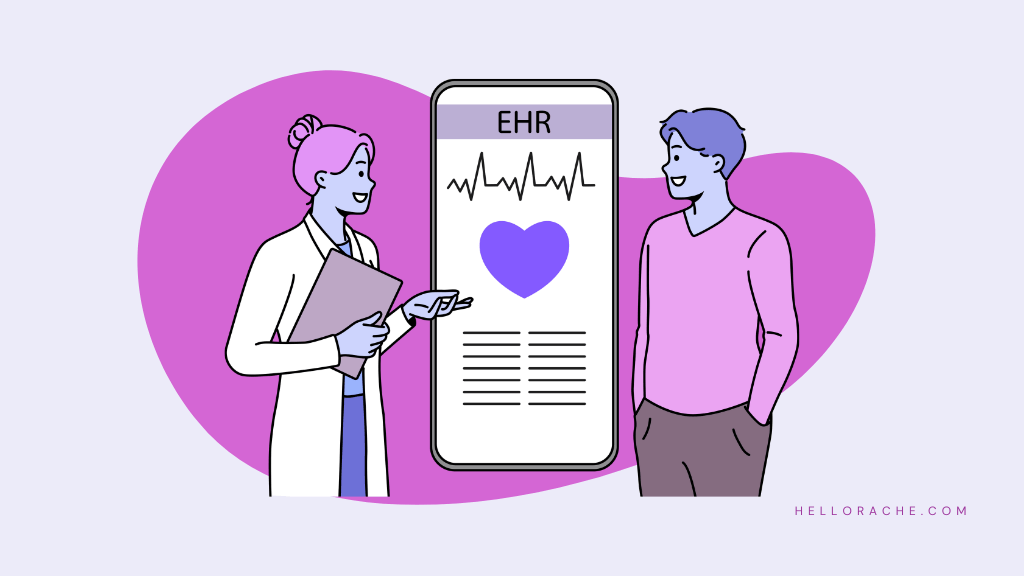Are you considering hiring a medical scribe? These team members can support healthcare professionals and keep your patient records up to date.
77% of healthcare providers say medical scribes can improve efficiency and reduce their administrative workload. Additionally, 82% say virtual medical scribes are just as beneficial as in-office scribes.
The question is, how much should you pay a medical scribe? To help you find a fair wage, we’ve put together the following salary guide. We’ll give you a rundown of the average salary and tell you where the highest-paying states are.
You’ll learn what to look for when hiring a medical scribe and when a remote worker could be the best option. Finally, we’ll give you a list of interview questions to ask potential employees.
What is a medical scribe?
Medical scribes work for doctors and other healthcare providers. They transcribe conversations between patients and physicians and write reports.
Medical scribes can be present during patient appointments. They take notes, update patient files, and order tests during this time.
While they commonly work in real-time, sometimes they may be asked to transcribe voice recordings.
Medical scribes usually have a background in health. The role can be complex, and medical knowledge can help prevent mistakes.
You don’t need to hire a new employee to get the benefits of a medical scribe. A healthcare virtual scribe can be an affordable alternative. They can still be in the room via video chat.
At Hello Rache, you can get assistance from a trained and certified scribe. Our team members are available to assist you no matter where you are in the world. Learn more about our virtual scribe services.
How do you become a medical scribe?
If someone wants to become a medical scribe, they’ll need a high school diploma or equivalent. They’ll also need experience in the healthcare industry, education, and a certification. A degree in a related field can be helpful.
Job training will be provided, and there are opportunities for advancement for motivated workers.
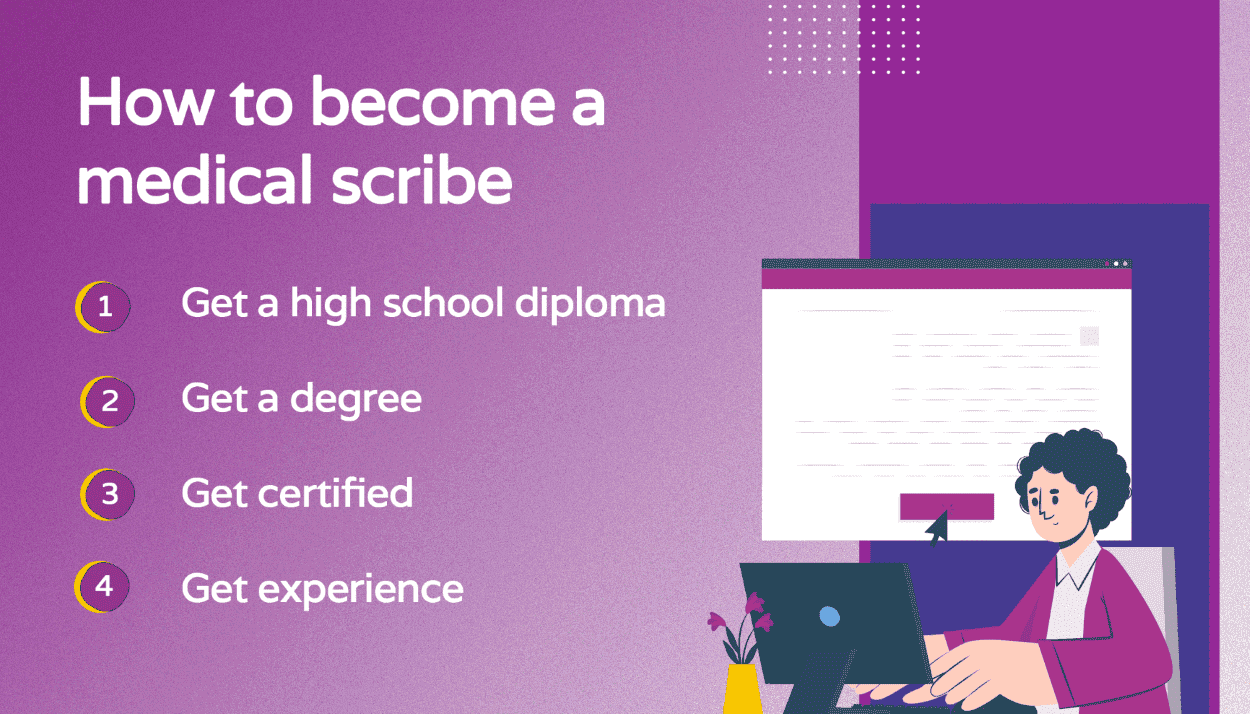
Administrative skills, computer skills, and technical skills are essential.
Those who want to work remotely will need a quiet workspace, a computer, headphones, and a phone. To maintain the privacy of patient files, they should have a secure internet connection and strong passwords.
Should you use a virtual medical scribe or hire someone in-office?
Choosing whether to use a virtual or in-office medical scribe can be hard. The answer will depend on your unique needs.
If you have a large workload and want help with other administrative tasks, such as filing, photocopying, and greeting customers, an in-office scribe could be the right choice.
Alternatively, a remote option could be a better fit if you’re tech-savvy and comfortable communicating virtually.
When you opt for a virtual scribe, you can save time and money. They’ll take care of your repetitive clerical tasks without the need for locked-in contracts. You won’t need additional office space, and there’s no need to offer employee benefits.
Check out this list of reasons why you should hire a virtual medical scribe.
How much is a typical medical scribe salary?
How much should you pay your medical scribe? The national average is $30,427 per year, with an hourly wage of $13.34.
Pay can vary depending on professional experience. Those in entry-level positions with less than one year of experience can expect an average salary of $11.90 per hour. Medical scribes who have worked between one and five years may get $13.34 per hour.
More experienced workers with up to ten years of experience have an average wage of $15.41 per hour. Top earners with more than ten years of experience make an average of $16.73 per hour.
The highest-earning medical scribes can make more than $17.91 per hour.
If you opt for a virtual medical scribe from Hello Rache, you’ll save money without sacrificing the quality of the service. For just $9.50 an hour, you’ll get access to a trained and experienced team member. You’ll get convenient weekly billing with no contracts and no overtime.
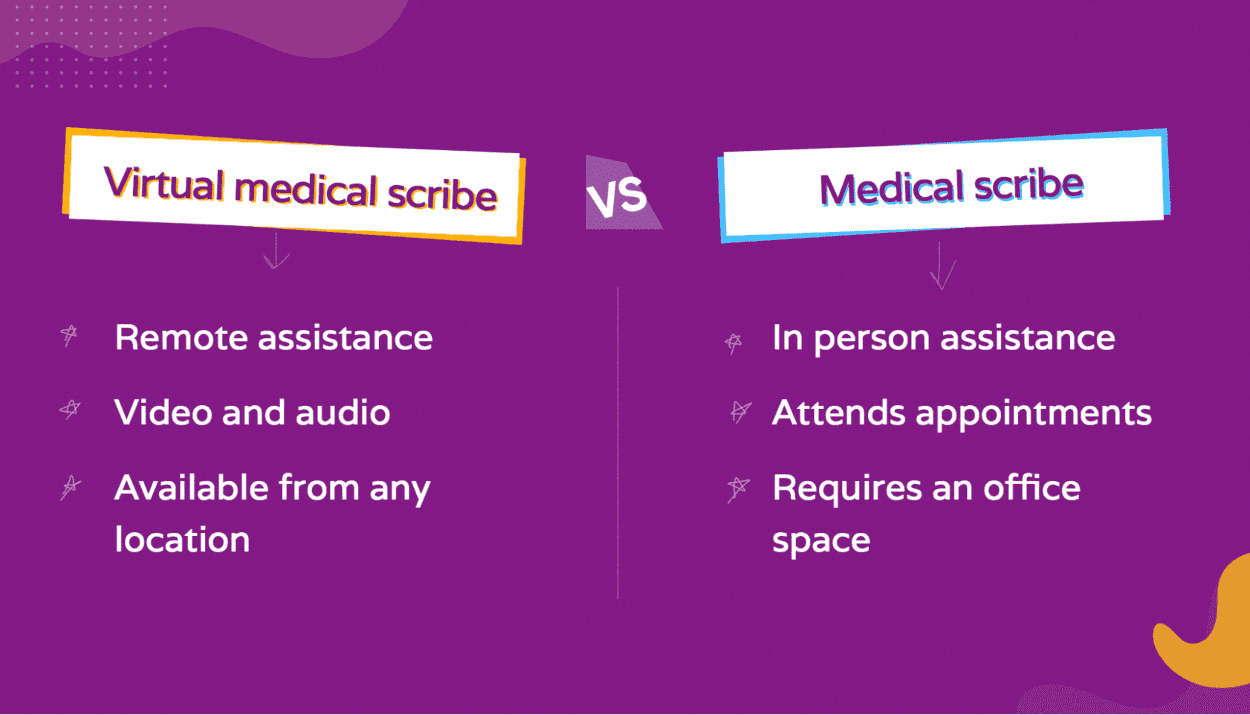
What are the highest-paying states for medical scribes?
The average salary for medical scribes can vary from state to state. One of the highest-paying areas is Arizona, where medical scribes make an average of $15.72 per hour.
New York isn’t far behind, with the average medical scribe salary sitting at $15.36 per hour. In California, it’s around $14.00 per hour; in Florida, it’s $12.47 per hour.
Medical scribes in Virginia make an average of $10.37 per hour, and those in Texas make $10.25 per hour.
While the location can impact the salary, there is a range of other factors to consider. Experience, qualifications, and time spent in the role can also affect how much a person makes.
If you choose a virtual medical scribe, location won’t matter. These remote workers can be based anywhere in the world, giving you access to high-quality service whenever you need it.
What benefits should you offer a medical scribe?
If you’re considering hiring an in-office medical scribe, they may be entitled to benefits. These benefits can depend on whether they’re employed part-time or full-time.
Common benefits include health insurance with hospital and prescription coverage. Dental and vision insurance are also included in most medical plans.
Life insurance and disability insurance are standard perks. Flexible spending accounts (FSAs) and health savings accounts (HSAs) are often given to employees to help them pay for unexpected expenses.
Retirement benefits such as a 401(k) plan, sick days, maternity leave, and vacation leave may also be on your list. Depending on the type of health practice you run, your team members may receive an employee discount on products or services.
Remember, virtual medical scribes won’t be on your company’s payroll. This means you won’t need to worry about giving them ongoing benefits.
What career pathways are available for medical scribes?
Medical scribe positions can be a good starting point for those who want a long-term healthcare career. This job gives workers the opportunity to gain new skills and network with people in the industry.
Medical scribes can use their experience to open up new pathways. They may go back to college or take advantage of promotion opportunities.
While medical scribes can move on to almost any healthcare field, they often go on to become physician assistants. The role requires a master’s degree and comes with a significant salary increase. The average salary for a physician assistant in the US is $121,530 per year or $58.43 per hour.
Alternatively, the medical scribe may look at a medical assistant position. There are no specific minimum education requirements, and experience as a senior scribe can be beneficial. The average salary for a medical assistant is $37,190 per year or $17.88 per hour.
If medical scribes want to leave the office, they may move on to an emergency medical technician (EMT) position. A degree may be required, and the average salary is $36,930 per year or $17.76 per hour.
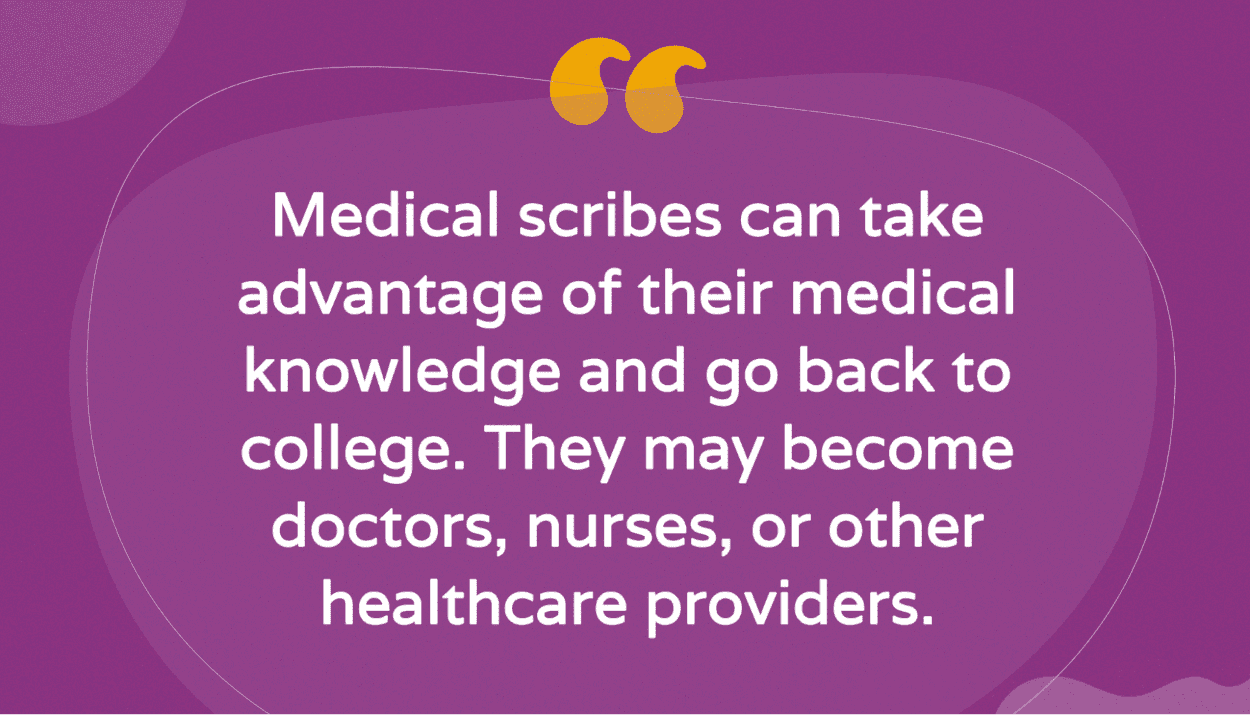
What is the difference between a medical scribe and a transcriptionist?
Medical scribes and medical transcriptionists do have some similarities. However, there are a few slight differences between the two roles.
Transcriptionists work with voice recordings and turn them into written documents. They usually work remotely and can have flexible schedules.
On the other hand, medical scribes usually attend patient appointments. They support the healthcare worker by transcribing the conversation. For example, they update patient records and take notes in real-time.
Not all medical scribes work in-office – some work virtually from a remote location, such as a quiet room in their own homes. Virtual medical scribes can still be present at appointments, but they do this via video chat or phone call. Just like transcriptionists, medical scribes may also be asked to transcribe voice recordings.
Both roles require some medical experience, an understanding of medical jargon, and basic computer skills. Medical scribes should be self-motivated and able to work with a high level of accuracy.
What should you look for in a medical scribe?
If you want to fill a medical scribe position, there are specific skills and attributes that can help your clinic.
Not sure where to start? Here is what to look for.
1. Good rapport with patients
Your medical scribe will be attending appointments with you. Whether they’re in-person or in the room virtually via video chat, they need to prioritize patient care.
The person you choose should respect each patient’s privacy. Any conversations are confidential, and the medical scribe should understand their legal obligations.
Having a good rapport with patients will help put them at ease. During appointments, sensitive topics might be discussed, and patients can become emotional as their diagnoses are revealed.
Every member of the healthcare team should be empathetic, calm, and compassionate. The medical scribe should have all of these attributes.
2. Experience in healthcare
Medical knowledge is beneficial for this position. These scribes maintain electronic health records, and an understanding of medical terminology will help them do their jobs.
Sometimes, the medical practitioner will use complex medical language and jargon during appointments. The medical scribe should be able to quickly interpret technical information as they input data. Prescriptions and referrals need to be recorded correctly.
Because medical scribes are often present during appointments, healthcare knowledge can help give your patients excellent service. They’ll know how to communicate effectively and will be relaxed during sensitive discussions.
For example, if a patient has an uncomfortable issue, the medical scribe needs to remain calm and professional.
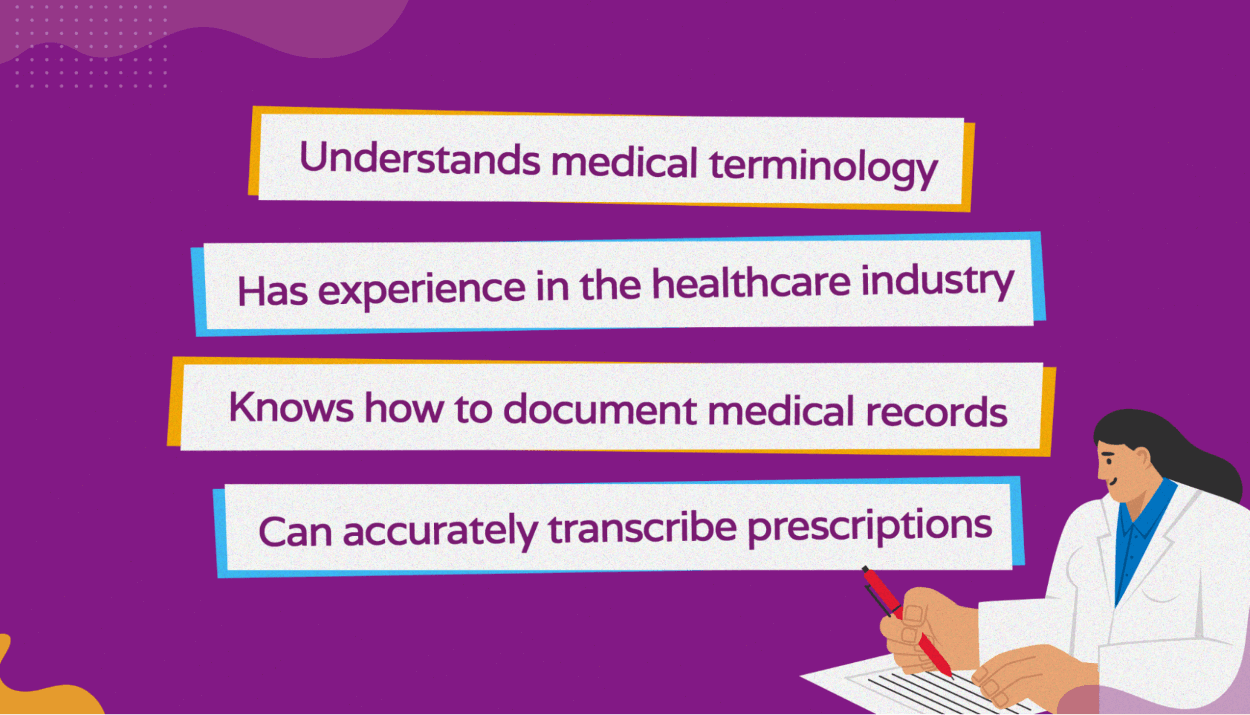
3. Training and certifications
Most medical scribes have a high school diploma or equivalent. The person you choose should have training in medical scribing. They should also be trained to interpret medical terminology and know how to safely store confidential data.
Certification will give you peace of mind that the medical scribe meets industry standards. For example, they can complete training and gain certification through HIPAA (Health Insurance Portability and Accountability Act).
As a healthcare provider, it’s your responsibility to find team members who have the same high standards for patient privacy and service as you do. The right certifications and a commitment to ongoing training can make a difference.
Most medical scribes will already have a background in healthcare. They could be nurses, medical students, or retired healthcare professionals looking for additional income.
4. Organizational skills
Medical scribes need excellent organizational and time management skills. Their duties can be repetitive, and they should be confident doing their job independently if they work from home.
They’ll be part of your team and need to be ready to work when you are. For example, if you’re expecting your medical scribe to be there during an appointment, you don’t want to wait. They should be ready to go with all of the required tools.
When hiring a medical scribe, you can ask them to talk about their organizational skills during the job interview.
5. Computer skills
Medical scribes rely on technology to do their jobs. Computer and technical skills are essential for anyone in this role.
They’ll need basic skills using common software such as Microsoft Office and Google Workspace. Plus, they should have fast, accurate typing skills.
Medical practices often use dedicated health programs. The medical scribe should feel comfortable learning how to operate new software and confident in maintaining electronic medical records.
Your medical scribe should know how to send professional emails. Sometimes, they need to email other healthcare professionals, patients, and carers.
Medical scribes can use apps, recording devices, and headphones. They should be able to navigate these types of tools.
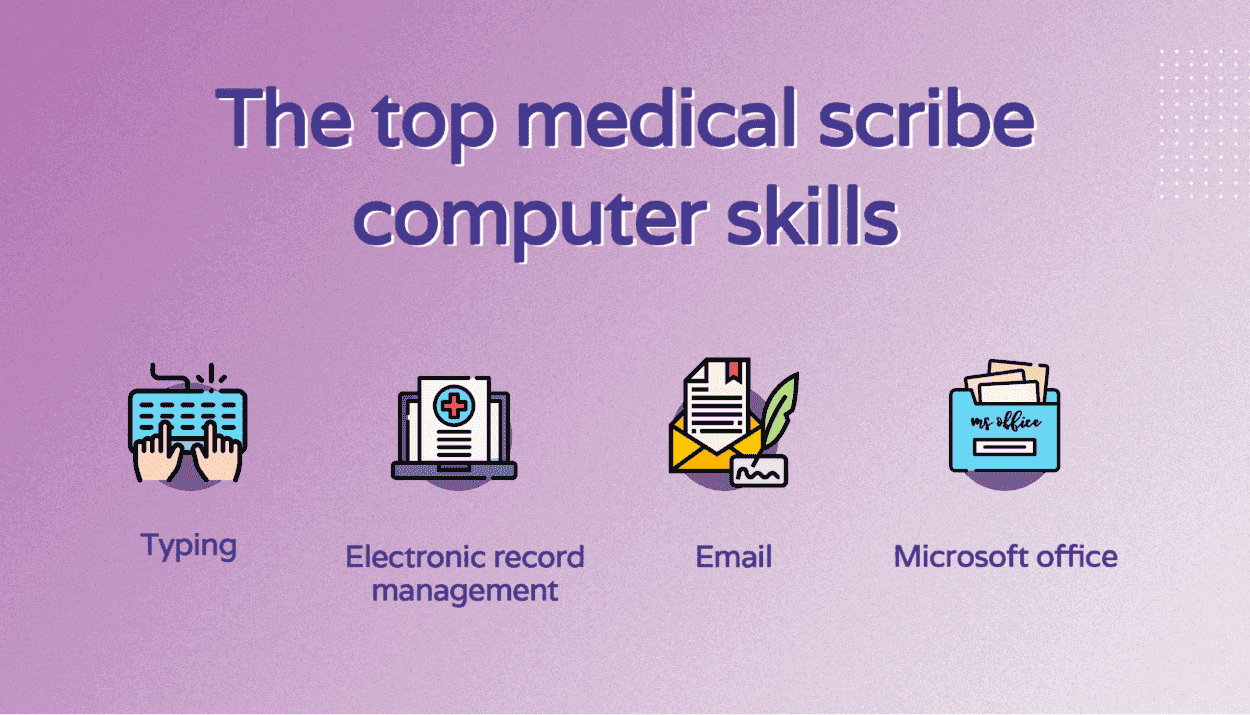
6. Excellent communication skills
All health workers need excellent communication skills. Medical scribes will be around patients, so they need to be polite and empathetic.
They also need to communicate effectively with other team members.
They’ll use their listening skills to record what the health professional is saying. It’s important that this information is transcribed accurately. The wrong information can lead to incorrect treatments or missed referrals.
Medical scribes may communicate with team members and patients over the phone. Look for a person who has good phone skills. For example, they should answer the phone quickly, introduce themselves, and answer questions in a friendly manner.
7. Attention to detail
If you’re investing money in a new employee, you’ll want to make sure they can do the job. Having to oversee team members can be time-consuming, and when it comes to medical scribing, there’s no room for error.
One mistake can lead to poor patient outcomes. If the wrong prescription is recorded or a detail is missed, it can have an impact on treatment.
This is why you should look for a medical scribe with great attention to detail. A detail-oriented team member will work with accuracy. They’ll be focused and double-check everything they do.
8. Administrative experience
The main role of the medical scribe is to create patient records during appointments. However, if the person has other administrative experience, it can be beneficial.
A medical scribe with a wide range of skills can support you with other office duties. For example, if there’s downtime, the scribe can answer phone calls, greet patients, and respond to emails.
They can help with filing, booking appointments, taking notes, and writing letters.
Medical scribes with administrative skills will be the full package. If they’ve worked in an office in the past, they’ll understand how to manage their time under pressure.
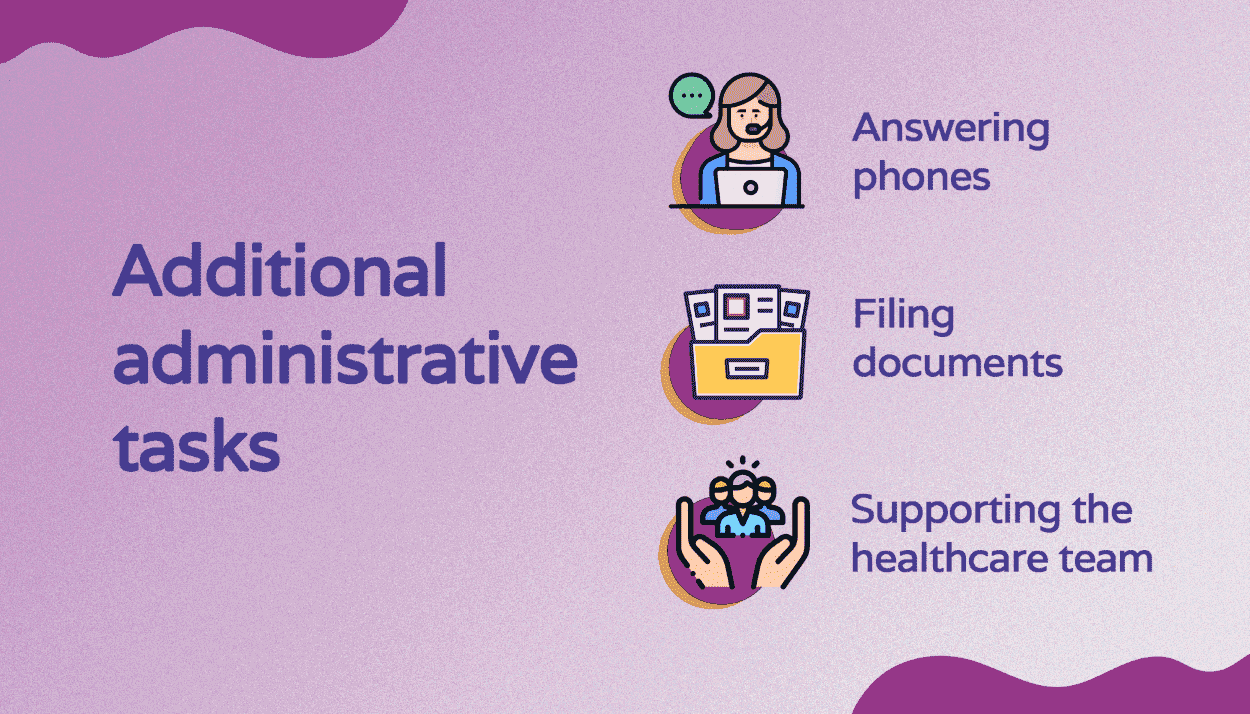
What questions should you ask when hiring a medical scribe?
Do you want to hire a medical scribe? Unless you hire a pre-screened remote worker, you’ll need to filter applicants until you find the right person for the job.
A job interview will be part of this recruiting process. Here are the top questions you should ask potential employees.
- Why do you want to work as a medical scribe?
- Do you have experience in the healthcare industry?
- Give an example of how you use your organizational skills in the workplace.
- What is your typing speed?
- Do you have experience using electronic medical records?
- Why do you want to work for this company?
- How do you feel about working in a fast-paced environment?
- Where do you see yourself in five years?
- What are your biggest strengths?
- Share an example of when you had to be a team player.
- What do you know about patient care?
Getting the most from a medical scribe
Medical scribes can document your medical appointments. They can be present in person or via video chat and record patient information in real-time.
In this guide, we compared the average salary between states. Medical scribes in New York, Brooklyn, and Phoenix are among the highest-paid.
Before hiring a medical scribe, there are a few things to look for. Someone who has good rapport with patients, experience in healthcare, and training will be prepared for the demands of the job.
Organizational skills, computer skills, communication skills, and attention to detail are all skills to put on your wishlist. Administrative experience will also be beneficial.
Want to try out a virtual medical scribe? We offer a high-quality service that’s affordable, and you can cancel at any time.
Learn how Hello Rache can help you. Before you go, head over to our blog for more healthcare news.

